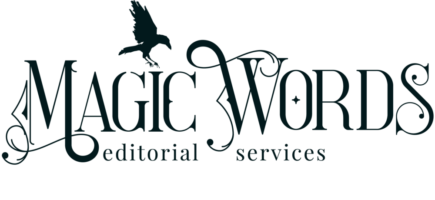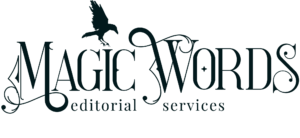
How Can I Find the Right Editor for My Book? Four Criteria to Use
Now that you know what an editor does, why your book needs one, and (hopefully) the type of editing your manuscript is ready for, you’re probably asking, “Yeah, but how can I find the right editor for my book? I don’t know what to look for.” In this next chapter in my series for indie authors on finding and hiring an editor, I’ll give you tips for knowing when you’ve stumbled on the right person to make your story shine.
First, a heads up: once you put out the call to the universe (or on Facebook or Twitter or Instagram) that you’re looking for an editor, prepare for the floodgates to open. Anyone and everyone who fancies themselves a bona fide word-fiddler will worm themselves into your DMs offering their services. And while at first you might feel spoiled for choice, sadly you’ll quickly realize not every “editor” has the chops or qualifications to really do the work. Indie and self-publishing is riddled with horror stories about (and evidence of) editing gone wrong.
So how do you separate the Fairy Godpeople from the Big Bad Wolves in the editing pack? Here are four “tests” you can use to find the right editor for your book and how to determine if a potential editor passes them.
How Can I Find the Right Editor for My Book? Qualifications
Test No. 1 is easy: What are the editor’s qualifications?
I don’t mean simply finding out if an editor has an English or writing degree or not. While that might help, a lot of highly talented and qualified editors DO NOT have literature, English, creative writing, or other fancy writing-related degrees. Nope. An MFA is not required to be a damn good editor (and don’t let anyone tell you otherwise).
But—an editor should have some kind of editing-specific, postgraduate training.
Note I said editing-specific.
Editing, and editing well, is a distinct specialization of skills requiring deep knowledge of grammar, yes, and industry-accepted style guides. For fiction, that means The Chicago Manual of Style. Postgraduate training could look like an editing certificate from an accredited institution (University of Chicago, UC San Diego, UCLA, University of Washington, Simon Fraser University, Emerson College, and other well-regarded institutions offer editing certificates). It could also look like extensive training from the Editorial Freelancers Association, ACES: The Society of Editing, or the Writer’s Digest’s copyediting program.
Check out the editor’s About page on their website—some will list the training courses they’ve completed. If not, feel free to ask for a rundown of the training the editor has had (and where and when).
Another qualification consideration: Does the editor have experience in and/or a strong love of your genre?
Do a deep dive into their Instagram or other social media accounts. Do they talk about the books they’ve read? Do they have a Goodreads profile, and what’s on it? Check out their testimonials or portfolio of work to learn the genres of their former projects.
A fiction editor should have a firm grasp of the tropes and conventions of your genre so they can make the right editing suggestions to help your story fit your readers’ expectations. (Keep this in mind: some editors prefer to read certain genres and edit others. Totally fine! Look heavily at their past projects to see if yours is one they edit.)
Speaking of testimonials, do they have any to share? What experience do they bring to your table and have they delighted previous clients? How many? If they have chosen not to share testimonials on their website (which some don’t for privacy reasons), can they give you references for past clients? Follow up with those references and listen carefully to what those authors have to say about the editor’s work.
Here’s a question I get a lot: Should you hire an inexperienced editor to save money?
Yes, perhaps. With caution. A lot of editors just starting out charge less to build up a client list and get experience. All of the above still applies. The editor should still have editing training, even if that training is recent. The newbie editor should have done some work, even if it was for friends/family. He or she should know and love your genre. If those bars are met, the only other things the editor might lack are experience and references. Use your best judgment to determine if the reduced cost is worth the potential risk. Also remember: every professional has to start somewhere.
How Can I Find the Right Editor for My Book? Questions
Test No. 2: How do they answer specific questions?
I love when potential author clients ask me questions, because it demonstrates to me that they care about the work I do and the editing process enough to explore our potential fit. Test No. 2 is somewhat choose-your-own-adventure, because only you can determine what questions are important to you and their acceptable answers. But I’ve compiled a list below that might help you go beyond surface-level queries and get deep into the meat of the editor’s professional personality and work style.
Do you read books like mine? Do you have experience working on books like mine? If an editor does not include information about their preferred reading and/or editing genres, this question is a no-brainer. Ask it.
Do you like to keep in touch during an edit or concentrate on the work? Some editors need time and space to dig deep into the work. Interruptions (like numerous questions from an anxious writer) may take them out of the flow they need to think about your work and make the best suggestions. Others take them in stride or set aside time to answer a batch at once. Know your tendencies and what you need in the way of communication and reassurance. An editor’s working style may not be a deal breaker, but having that info could help set your expectations appropriately.
What will I get in the edit? A detailed breakdown of service deliverables is a must to help you know what you’ll get for your precious money. If this isn’t spelled out on the editor’s website or your Letter of Agreement (uh, you do have one, right?), ask. Ask, ask, ask. Use the answer to inform your decision to work with the editor or not.
Are there any tropes or topics you don’t want to work on? Editors, just like readers, can be sensitive to certain topics like assault, abuse, discrimination, sexual issues, etc. Editors are people too! As a result, they might prefer not to work on stories that contain triggering events or language. If your book deals with subject matter that might be uncomfortable to some, and an editor hasn’t mentioned an aversion to such, a friendly inquiry at the beginning of the hiring process is a must so there are no surprises on either side.
What’s your turn-around time for books of my word count? This is a must-ask question, especially if the editor hasn’t mentioned how long their work might take. Best to know up front, right?
Are you a writer? If so, do you write in my genre? First, I want to emphasize that being a writer is NOT a requirement for an editor. Many amazing, capable editors do not have the time or inclination to do their own writing and publishing. Some do. If you feel like your editor should have an insider’s understanding of the writing trenches, that it would help you feel a greater affinity for them as a person and a professional, find out.
One other pro tip: poke around a potential editor’s website to see if they’ve posted a Frequently Asked Questions page. These might be general questions about editing or the editing process, but the questions are usually ones the editor has been asked many times, and the list may contain some you haven’t thought to ask. The answers could be enlightening!
How Can I Find the Right Editor for My Book? Samples
Test No. 3: Does the editor offer sample edits?
Test No. 3 is, er, just that—a test, or sample, edit, which is a demonstration of an editor’s skill on a small portion of your actual manuscript.
Yep. Editors will actually edit a certain word count of your book (usually 1,000 words or one chapter) exactly as they would during the project to give you a feel for their skills and how they’d address queries and comments. A huge caveat though: sample edits are really only effective if you’re purchasing a line or copyedit. It’s extremely difficult to perform a sample edit for developmental work or manuscript critiques as those deal with the overall big picture of a story, and, well, an editor would have to spend the time to read the whole thing. No one likes to work for free, yo.
Some editors charge a small amount for sample edits, which might then be applied to your project cost if you hire them. Some do them for free. Usually the editor will work on a portion of your book that will only take an hour or so to complete (see above: working for free). Some will ask for your full manuscript and select the portion to edit themselves; some will ask you what chapter you want edited. In other words, when asking an editor to do a sample edit, expect anything and everything, but let them control the process. That will tell you a lot about their working style and habits.
Evaluating the Sample Edit
But—hold up. Once you get the sample edit back, how do you evaluate their work? I mean, you’re not an editor yourself, right? Isn’t that why you’re hiring one? Yes! Truth. There are a couple of ways you can tell if the editor’s work is stellar or garbage without memorizing Chicago style yourself.
First, look at their comments and queries, which will appear in the margins (most editors work in Microsoft Word with Track Changes and commenting on). Do they explain their editing choices? Do the explanations make sense? Are they respectful of your ultimate authority over your own work as the writer? Are they kind?
Second, skim the actual changes. You might not understand all the corrections, but are there any glaring errors like misspellings or missing punctuation? The acceptable catch rate for the best editors in the business is somewhere between 80-95%. Mistakes might creep in or get missed. BUT. If the error or omissions are egregious, maybe thank them for their effort and move on.
Third, turn off Track Changes and comments and read through the clean, edited text. Have the editor’s changes made the text flow better, improved readability, enhanced clarity? Most importantly, have the edits preserved your unique voice? If yes, you may have found your person.
How Can I Find the Right Editor for My Book? Fit
Test No. 4: How well do you fit with this potential editor?
The final test is one that relies more on your intuition than anything concrete and quantifiable. Finding an editor can sometimes feel like dating. So much of what makes any relationship successful is fit, that elusive “click” you just feel with a certain person. And, honestly, rapport between an editor and an author might be the most important thing to making an edit (and a book) successful.
Beyond an editor’s qualifications, their answers to your questions, and the tangible evidence in a sample edit, how can you tell if an editor will be a good fit? Isn’t that a bit like throwing a dart blindfolded and hoping you hit the target? Perhaps.
Trusting your gut is always going to win the day here. But there are a couple of left-brained, logical techniques you can use to help that intuition along.
Pay attention to the editor’s personality. So much of the “courting” that happens between an editor and an author is through email or other electronic channels. You don’t get the benefit of looking them in the eye, hearing their voice, or observing their body language. But you can tell a lot about how they treat you in email exchanges, the “voice” they use in website copy, blog posts, contracts and invoices, what they post about on social media.
After you’ve had a few interactions, ask yourself if you can respect and get along with the person. Do you like their tone or sense of humor? Do you feel validated and seen as a person and a writer? Do you feel they will treat you and your writing with care and tenderness? Were their queries in the sample edit kind and personable and didn’t leave you feeling stupid or like a bad writer?
If you feel generally positive after applying all of these tests, congratulations, magic writer! You may have found your editor.
Like what you’ve read? Check out more posts here.
Looking for an editor who specializes in fantasy, sci-fi, horror, and other speculative fiction? Check out my services and learn more about my training and qualifications.
Other posts in this series:
What Does an Editor Do, Exactly? The Real Job of an Editor
The Different Levels Of Editing And How To Decide What Your Book Needs
Thinking of Hiring an Editor? Three Places to Find “The One”




